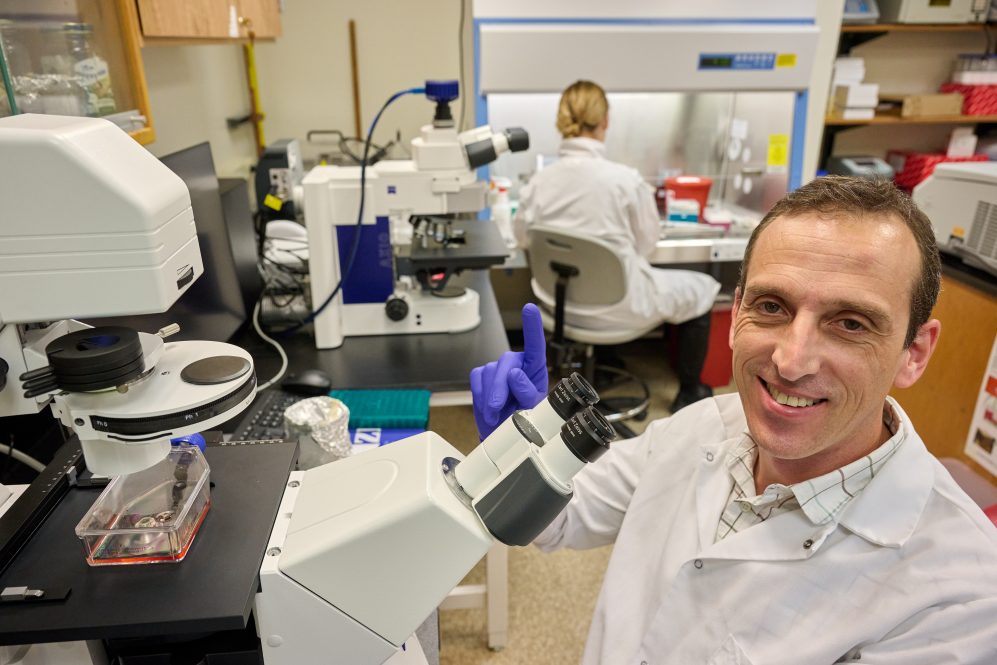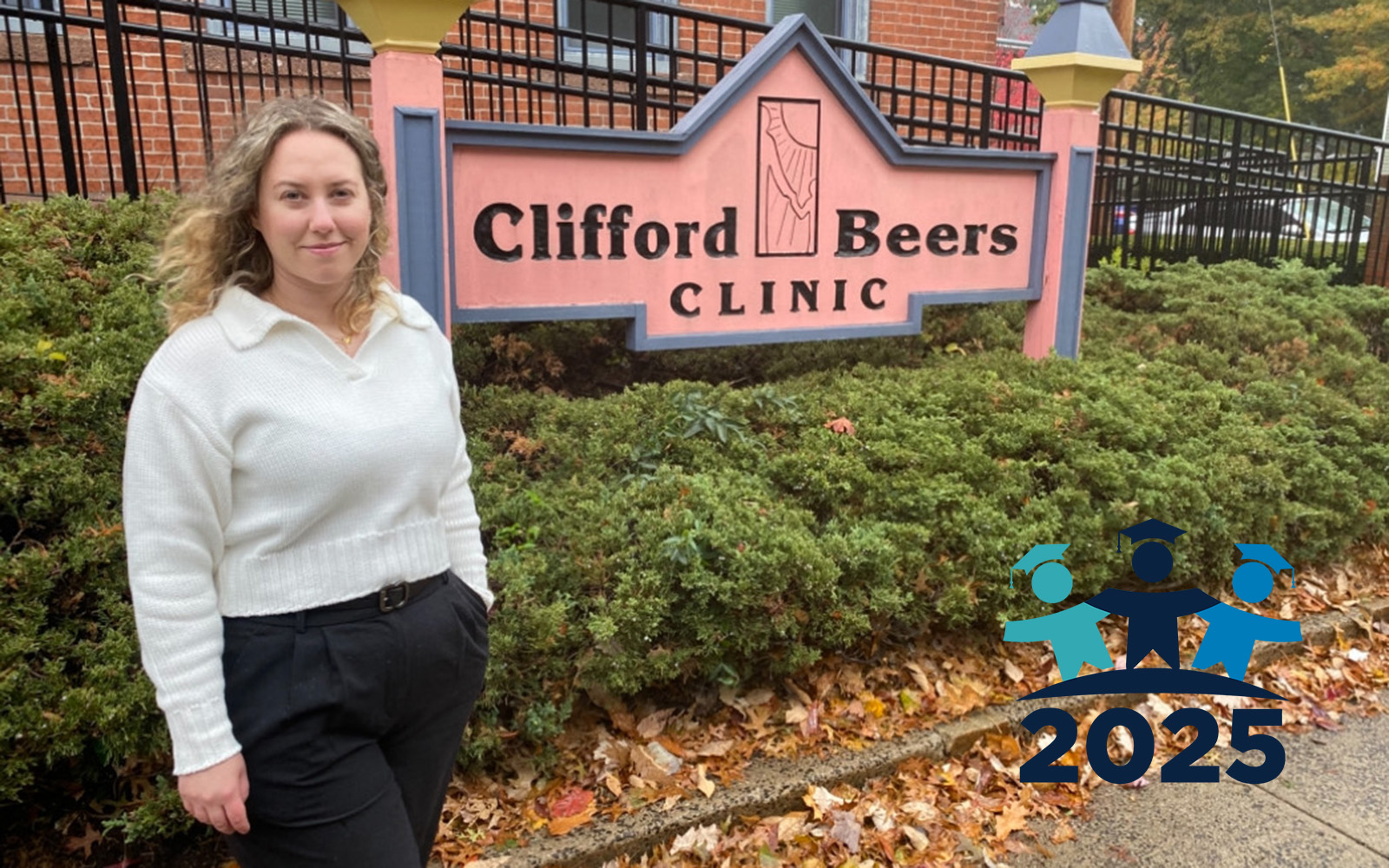“One Health” is the concept that human, animal, plant, and environmental health are all interconnected. It’s gained traction in recent years as more zoonotic diseases (which infect both animals and humans) jeopardize human health, from swine and bird flu to even, potentially, the SARS-CoV-2 virus that recently wracked the globe.
But for Elsio Wunder, an assistant professor in the department of pathobiology and veterinary sciences, “One Health” has always been a guiding star. Having worked in both veterinary medicine and (human) public health, Wunder currently combines both skill sets in his lab at UConn, where he works to solve the mystery of leptospirosis, a devastating and understudied disease.
An Understudied Public Health Crisis
Leptospirosis is spread through the urine of infected animals like rats. The disease, which is caused by the bacteria Leptospira, leads to serious illness and an estimated 60,000 annual deaths worldwide. Pets are also susceptible to the disease; a leptospirosis vaccine is recommended for dogs in many regions, including Connecticut.
Leptospirosis in humans is fairly rare in the continental United States, though New York City recently reported a record total of 23 cases in 2023, a number that is expected to climb. These cases were mostly among sanitation workers and homeless individuals, who are more likely to come into contact with contaminated material. Additionally, the United States territory of Puerto Rico experiences high levels of Leptospira exposure, with researchers (including Wunder) theorizing that the true infection rate is drastically underreported.
In certain regions of Brazil, Wunder’s home country, the disease is a major public health issue. Brazil has the highest number of leptospirosis cases in Latin America, with thousands of cases per year and a mortality rate around 8%.
After operating a private veterinary diagnostic lab for several years, Wunder wanted to return to research and use his expertise in leptospirosis to help control the spread of the disease among people. He moved to Salvador, a city in the Northeast Region of Brazil, and served on a research team investigating leptospirosis risk factors among its residents.
“About 70% of the population in the city lives in slum areas where leptospirosis is very endemic,” Wunder explains.
As his resulting paper notes, around one billion people in the world live in similar conditions. Understanding the social and structural risk factors for leptospirosis is an urgent task.
“It’s a neglected disease, which is a great passion for me,” says Wunder. “It has a major impact in populations of developing countries with limited access to drugs or other methods of prevention, so it also makes it difficult to get funding – it’s a neglected disease that affects poor people, so pharma companies aren’t interested in investing money in it.”
The Race for a Vaccine
Wunder is specifically interested in pathogenesis – the process through which pathogens (viruses or bacteria) enter the body, multiply, and cause disease.
Generally, once researchers understand the pathogenesis of a specific virus or bacteria, they can begin to develop better treatments and vaccines.
But not much is understood about the pathogenesis of Leptospira. That’s the gap Wunder is racing to close.
“We do have a vaccine available worldwide for animals – dogs, pigs, cattle,” Wunder says. “But it’s not exactly a very effective vaccine. Some countries have a version of that vaccine they use for people at high risk, like sanitation workers, veterinarians, and people working in abattoirs, but overall, there’s really no prevention for humans.”
Additionally, since leptospirosis is considered a neglected tropical disease, many clinicians in the US don’t consider it when diagnosing patients, Wunder explains. Improved diagnostic tools would allow doctors to better identify potential cases and provide earlier treatment, for both human and animal patients.
“My whole goal is to actually understand how the bacteria causes disease, and then by doing so, identify potential candidates that I can use for either vaccine development or improvement of diagnostics,” he says. Years of research have generated promising results that continue to be explored by Wunder and his team at UConn.
From South America to Storrs
Wunder followed his former mentor, a Yale researcher working in Brazil, back to Connecticut to complete a postdoc at Yale University. Wunder lectured and researched at Yale for 12 years, continuing to focus on public health.
But, as a trained veterinarian, “I missed working with animal health,” he recalls.
The desire to unite his public health and animal health interests led him to UConn, where the One Health approach is a pillar of the College of Agriculture, Health, and Natural Resources (CAHNR).
The College’s unique union of these distinct fields (agriculture, health, and natural resources) perfectly positions it as a hub for One Health research.
UConn is also home to the Connecticut Veterinary Medical Diagnostic Laboratory (CVMDL). Thanks to this proximity, Wunder has been able to work closely with the CVMDL to track and analyze leptospirosis cases in Connecticut among pets, wildlife, and livestock.
“The great thing about being at UConn is that I still work with my public health approach, and I’m still working with diagnostics and vaccines for humans, but the department and the College gives me the support and structure that I need to actually also work in animal health,” Wunder says. “That’s really exciting for me, because I can do both things at the same time.”
Leveraging CAHNR’s strong foundation in One Health, Wunder will continue his lifelong quest to reduce the human and animal health challenge posed by leptospirosis. He says the cause is particularly significant to him due to its impact on his home country, but it is also one which the entire global health community should take seriously.
“It’s very common in developed countries for people to say, well, this is not a problem here, so why should we care?” Wunder says. “But I think it is a problem. With climate change and increasing economic inequality, it’s the perfect storm to start seeing more cases of these diseases.”



